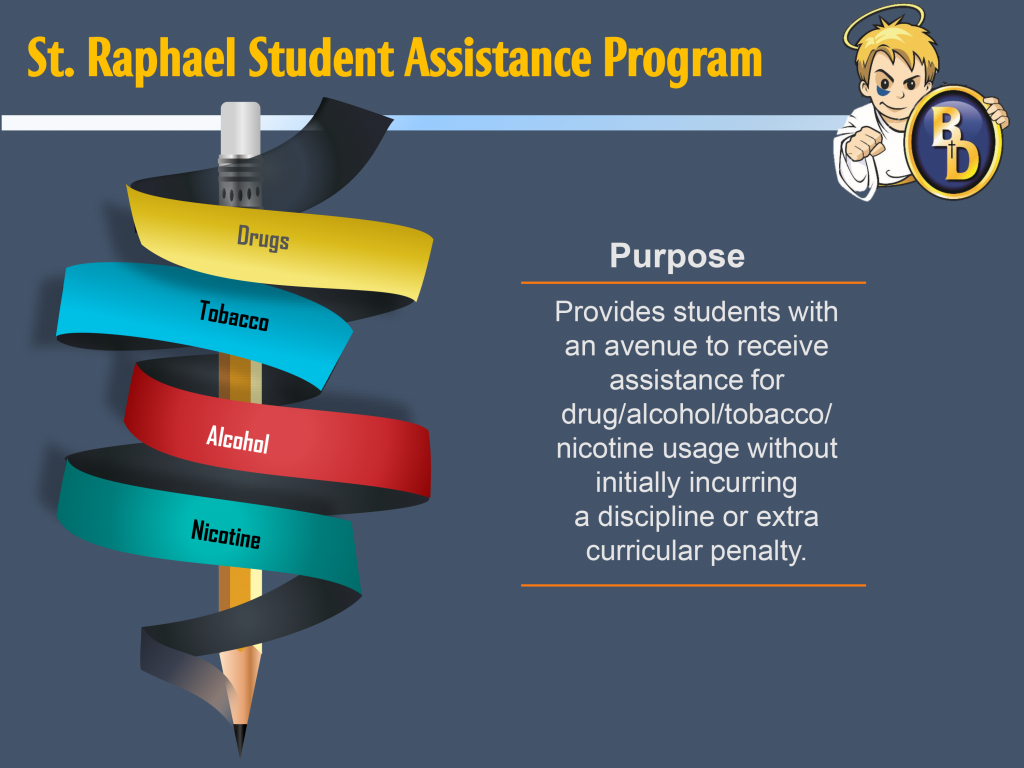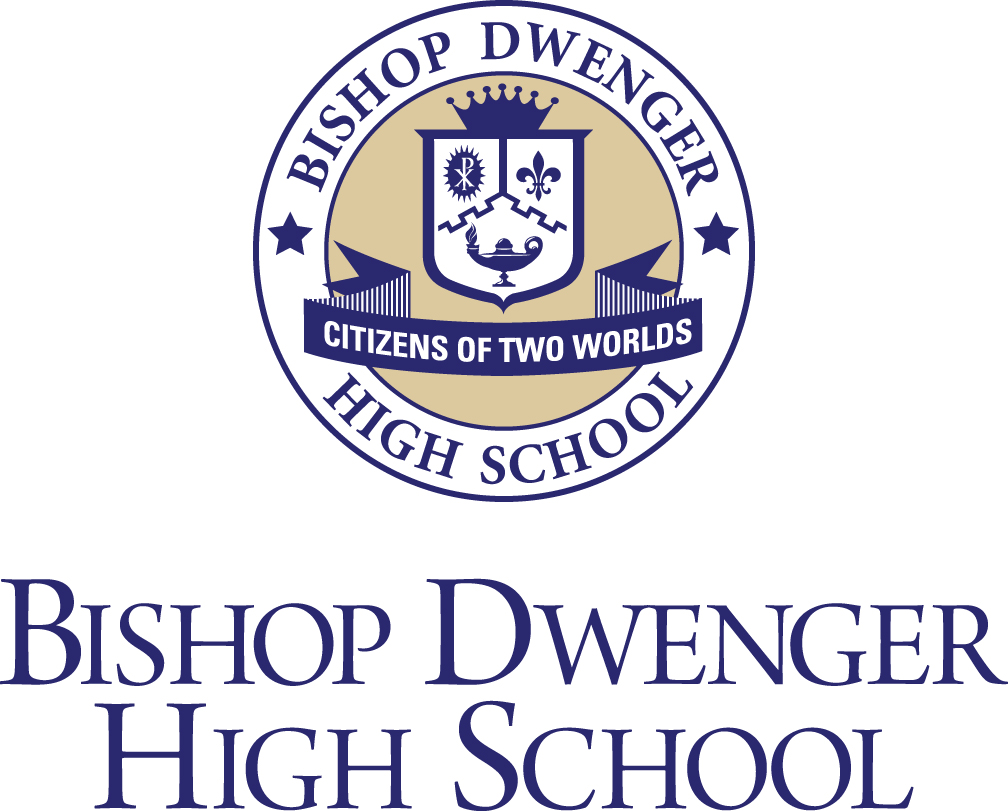January 28, 2019 // Diocese
Compassionate student support program invokes St. Raphael
A person might call it a second chance or mercy or compassion, but at Fort Wayne’s Bishop Dwenger High School it’s called the St. Raphael Student Assistance Program.
Also known as SRSAP, the program was introduced at the beginning of the 2018-19 school year to identify and assist students who are struggling with issues such as drug or alcohol use, nicotine use or vaping, pornography and self-harm.
“The need for the program came out of conversations about how we can help these students,” said Tiffany Albertson, assistant principal at Bishop Dwenger and coordinator of the program.
Chris Svarczkopf, who is dean of students at the school, began researching how to intentionally assist at-risk students two years ago. He learned about a successful program at Roncalli High School in Indianapolis, Albertson said. After a meeting with Roncalli student assistance staff, the staff and faculty at Bishop Dwenger agreed that they wanted a similar program for their students.
 Albertson said that since the Bishop Dwenger team wanted the program to be separate from the disciplinary actions that are the responsibility of Svarczkopf, she took the lead as program coordinator. Her job is to process the referrals, meet with families to discuss the program and formulate a plan, and organize meetings with the Student Assistance Team. In addition to keeping tabs on the students in the program, she tracks their progress, schedules drug testing and keeps data to continuously evaluate the program.
Albertson said that since the Bishop Dwenger team wanted the program to be separate from the disciplinary actions that are the responsibility of Svarczkopf, she took the lead as program coordinator. Her job is to process the referrals, meet with families to discuss the program and formulate a plan, and organize meetings with the Student Assistance Team. In addition to keeping tabs on the students in the program, she tracks their progress, schedules drug testing and keeps data to continuously evaluate the program.
Entry into the program is by referral. Students can refer themselves or be referred by a teacher, parent or other student. The program accepts both signed and anonymous referrals.
Albertson said that because the program does not have disciplinary action attached to it, there is no danger that an anonymous referral would be malicious.
“Students who are referred for drugs or alcohol may be able to avoid initial disciplinary consequences … and have been able to stay in school rather than face expulsion,” she said. If the student fails follow-up testing, disciplinary action may be initiated.
The program began in August with two students enrolled following conversations with parents during the summer break from classes. Albertson said the program is currently serving eight students and five have already completed the program.
 The program team includes Bishop Dwenger’s assistant principals, guidance counselors, pastoral minister and chaplain, a life skills counselor, the school nurse and athletic director. Counselors from the mental health community also may become involved in a student’s plan of action. Each participant is assigned a “mentor” at Bishop Dwenger who meets with the student regularly.
The program team includes Bishop Dwenger’s assistant principals, guidance counselors, pastoral minister and chaplain, a life skills counselor, the school nurse and athletic director. Counselors from the mental health community also may become involved in a student’s plan of action. Each participant is assigned a “mentor” at Bishop Dwenger who meets with the student regularly.
Albertson said there is no set time limit for a student to be in the program. “When parents, the student, and the student’s mentor feel they are out of the ‘at-risk’ zone and are able to avoid the issues that led to the referral, they are recommended for dismissal from the program.”
Parents are very much a part of the process, she continued. “We want to keep the lines of communication open and provide parents with support for their children. Parents can assist in setting goals and have options in the plan that is developed for their student.”
Naming the program after St. Raphael was part of “Dwengerizing” it, Albertson said. “We wanted to add a faith component to it. St. Raphael, as the patron saint of healing, was a good choice to serve as the namesake for the program. Ultimately, we want our students to be healthy in mind, body and soul.”
In addition to the expected outcomes of helping students aim for success in school and in life, she said that one of the unexpected outcomes has been the team’s efforts to provide useful information to the Dwenger community. “We have been distributing information about vaping and other related issues to our students and families.”
She believes Bishop Dwenger’s St. Raphael Student Assistance Program is the only one of its kind in northeast Indiana. “It has been well-received, and we are finding that we are very happy with the results so far. This program provides a compassionate approach designed to help students stay in school and find success in the classroom.”
Before starting the program, principal Jason Schiffli and Svarczkopf presented the plan to Bishop Kevin C. Rhoades and the diocesan school board. “Bishop Rhoades asked that we collect data to report back at the end of the school year. At this point, we are hopeful that our program will serve as a good model for the other diocesan high schools,” Albertson said.
The best news. Delivered to your inbox.
Subscribe to our mailing list today.






